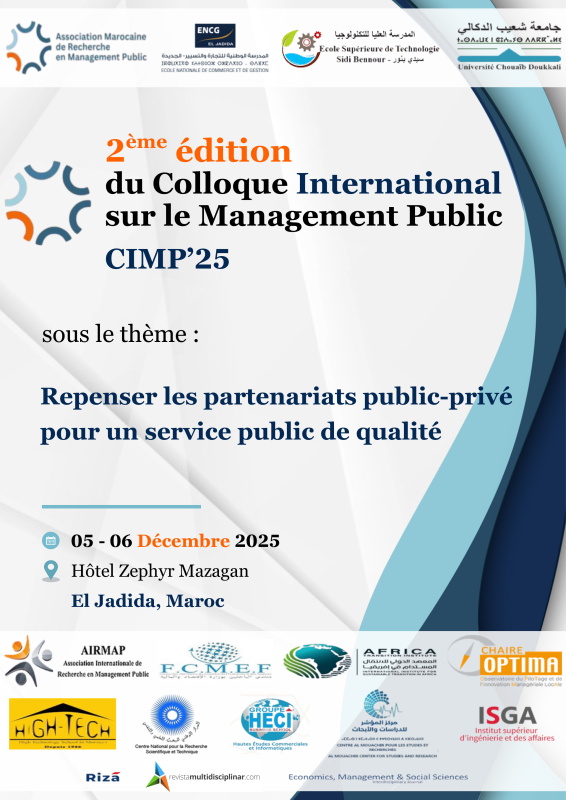Training of local elected officials, training organizations, and local government management
Practices, challenges, and perspectives
DOI:
https://doi.org/10.23882/emss24068Keywords:
Elected Officials, Local Authorities, Training Organizations, Skills, Stakeholder ExpectationsAbstract
The sector of training for local elected officials is highly regulated. Only organizations approved by the Ministry of the Interior on the advice of CNFEL - the National Council for the Training of Local Elected Officials - can provide training. As of September 27, 2018, there were 200 private or public organizations approved for the training of elected officials, such as universities, grandes écoles, associations, and consulting firms. For the elected official, it is a matter of understanding the functioning of an assembly, drafting a budget, speaking in public, using social networks, interacting with associations, and understanding new laws. For this, the elected official relies, among other things, on their experience, interpersonal skills, know-how, and exchanges of good practices with experienced officials. Each elected official also has the right to training, a right that has been strengthened by the legislature in recent years. Today, with the non-accumulation of mandates and the parity law, we see so-called novice officials taking office. Strong expectations are expressed by citizens, as seen in the "yellow vests crisis. In this communication, we propose a reflection on the effectiveness of training organizations and the ability of elected officials to meet these expectations.
References
Baslé M.-A., (2014), L’acculturation silencieuse à l’évaluation des politiques publiques et programmes dans les collectivités territoriales en France : le développement de capacités internes orientées vers la performance et la nouvelle gouvernance public, Politiques et Management Public, Vol. 31/3, p. 267-282.
Carassus D., Guenoum M., Samali Y., (2017), La recherche d’économies dans les collectivités territoriales : quels dispositifs pour quelles rationalités ? Plus de contrôle ou plus de pilotage ? Gestion et management public, 2, Vol. 5, n°4, p. 9-39.
D’Humières P., (2013), La RSE, une valeur pour l’espace public., Vraiment durable, 2, n°4 p. 65-74.
Huron D., (2001), Une typologie de maires entrepreneurs politiques comme aide au conseil dans les mairies, Politiques et management public, vol 19, n°2, p. 63-81.
La loi du 3 février 1992 relative aux conditions d’exercice des mandats locaux. La loi du 27 février 2002 relative à la démocratie de proximité.
La loi du 31 mars 2015 visant à faciliter l’exercice, par les élus locaux de leur mandat. Le Code Général des Collectivités territoriales se rapportant à la formation des élus.
Le Boterf G., (2013), Construire les compétences individuelles et collectives. Editions Eyrolles p 51 à 201.
Navarre M., (2013), Des carrières politiques sous contraintes de genre : le cas des élues de Bourgogne, Thèse de doctorat, octobre, Dijon.
Navarre M., (2014), Les inégalités dans la formation des élus locaux, Céreq Formation emploi, n° 128, octobre-décembre, p 65-79.
Rapports d’activités du CNFEL.
Rapport du sénat (2018) : Bonhomme F., Gréaume M., Lefèvre A., N° 642 « faciliter l’exercice des mandats locaux ».
Rapport du sénat (2012): Lefèvre A., N° 94 « la formation des responsables locaux : un enjeu pour nos territoires ».
Downloads
Published
How to Cite
Issue
Section
License
Copyright (c) 2024 Sabrina GHALLAL, Ayoub KATFI, Oumaima EL MNOUER , Hamza KATFI

This work is licensed under a Creative Commons Attribution-NonCommercial 4.0 International License.







